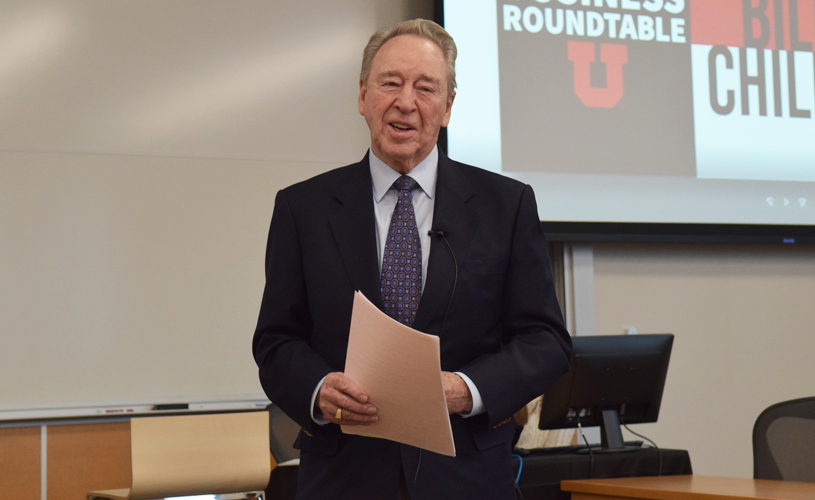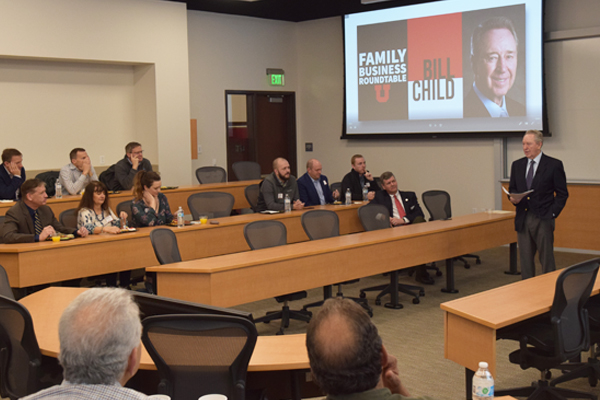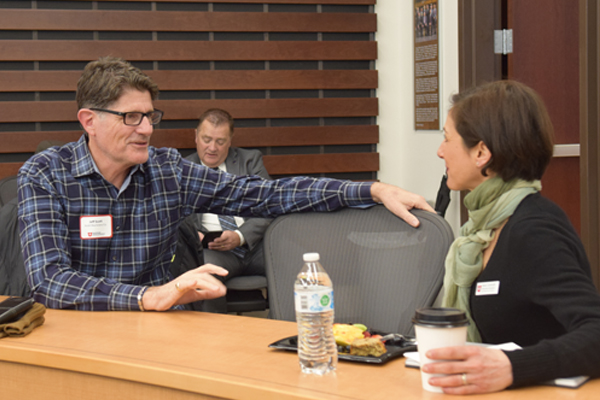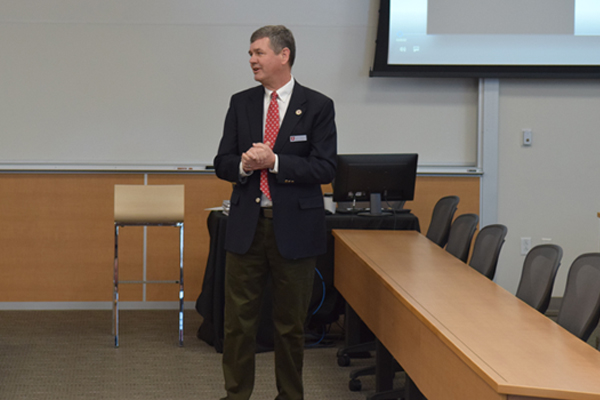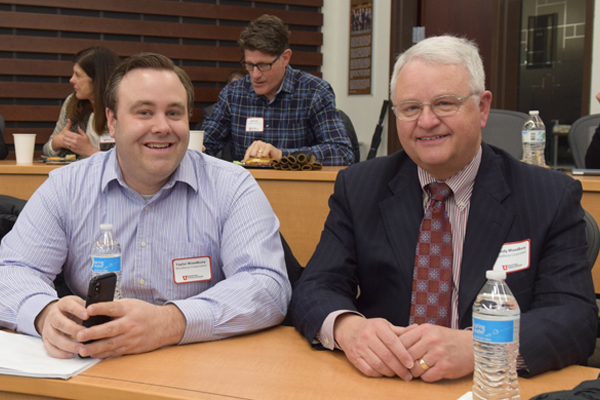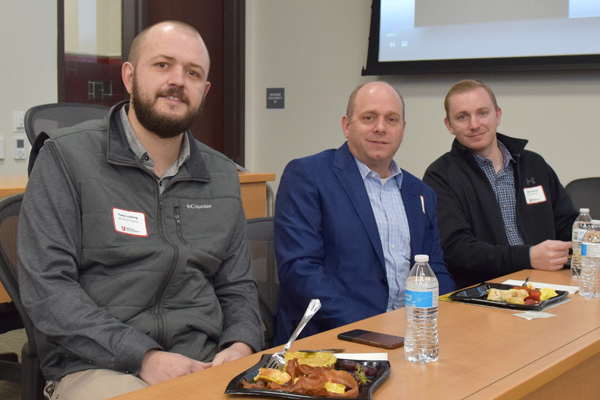At the David Eccles School of Business Family Business Roundtable, community members and business leaders joined together for networking, business inspiration, and a few laughs. This year’s roundtable featured Bill Child, who unexpectedly was put in charge of the R.C. Willey appliance business in 1954 after Child wed Willey’s daughter and Willey experienced a decline in health.
Having just started college and earning a teaching certificate, Child was ready to begin teaching in his native Syracuse, Utah. However, once he received the keys to Willey’s 600-square-foot storefront and dug into the numbers of the business, his objectives quickly changed. After a lot of hard work, the company got out of debt, became profitable, expanded outside of Utah, and was acquired by arguably the most notable businessman in the world, Warren Buffet.
After transitioning the day-to-day operations of the R.C. Willey company over to his nephews in the 1960s, Child took interest in the real estate world and joined Berkshire Hathaway. And, after several decades in the real estate world, Child again faced another challenge. He and his partners were several million dollars invested in a condominium development in Hawaii, just as the stock market crashed in 2008. Without the ability to get loans or put up out-of-pocket capital, the partners turned to Child, a minor partner at the time, for a solution. In a high-risk,-high-reward situation, Child decided he “might as well risk it” and leveraged the stock he’d acquired at Berkshire Hathaway to secure funding from two sources to continue the project. Child began managing the development over the next several years, completing the construction of Koloa Landing Resort, which is still standing and doing well today.
A man from humble beginnings, Child shared stories throughout the morning that encapsulated both his upbringing and business values.
Hunger for Success
Child opened the morning with a story about his experiences running track in junior, high school, and college. He noted he was a fast runner and was able to win many of the races in regular meets but always fell short of first place at the state championships. In college, his coach agreed to let him try running in a longer race, in which he was able to take first place. Child recounted the memory, noting “I never wanted to not succeed.” His determination for success followed him through tough business decisions, including shifting his focus from becoming a teacher to running and building a then-underwater company.
Integrity & Simplicity
In a video Child shared during the event, Buffet is featured, commenting on Child, “He’s got integrity like no one else.” Child supported this statement through his description of bringing up R.C. Willey. He talked about treating both employees and customers like family, and, once he got out of debt, staying out of debt, for good. He proudly proclaimed he did not mortgage any of the buildings for the retail locations he opened. Child shared his value of living cautiously, noting that if the money wasn’t available for a new business venture or improvement, it simply didn’t happen. He then gave a present-day example of his simplistic lifestyle, in reference to his attire, sharing, “This is a 20-year-old jacket and these are 20-year-old trousers.”
Stay in it for the Long Haul
Child closed the event with advice on investments, encouraging the audience to stay with any investments they’re making and hold out for the long-term benefits. He noted the opportunities he’s gained from waiting for much of his stock to vest – including the completion of Koloa Landing Resort, which wouldn’t have been possible if he’d sold his Berkshire Hathaway stocks at an earlier date. “If you have the right stock or the right company, it’s worth waiting for,” he said. Child also noted Buffet’s keen ability to spot which stocks would grow and where to invest, a unique skill set he was able to shadow.
Growing up on a farm in Syracuse, Child knew he wanted more out of life. His early desire to succeed, beginning with pursuing education and athletics, transferred when he was running a business. The simplistic life he grew up with and an early encounter with a much in-debt business venture taught him to live cautiously and spend wisely. And, lastly, Child’s patience, learned from seeing the benefits of long-term investments and taking time to critically make decisions, has aided in his business success.

